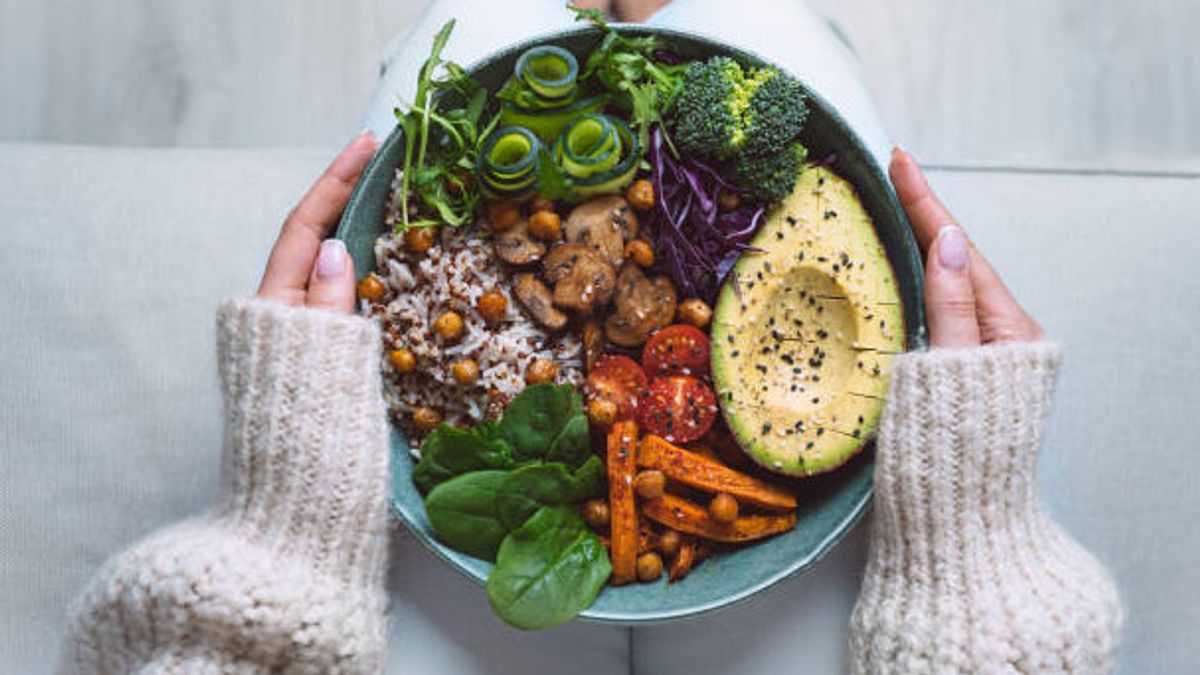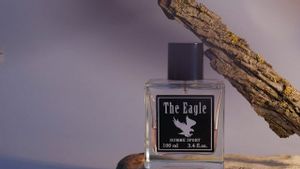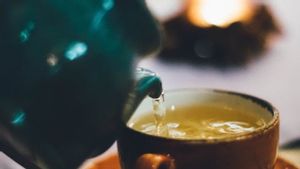JAKARTA - Hair loss is more than just shrinking hairlines or some strands of hair clog the bathroom sewer. For many people, this can cause great stress and blow to confidence.
Hair loss can affect anyone of all ages, gender, and emotional impacts very large. This can lead to feelings of insecure, anxiety, and even withdrawal from association.
But what if the key to improving hair condition is not located in the use of expensive products, but is in the food you choose? Here, VOI hits the Times of India, Thursday, July 18 exploring the relationship between diet and hair health, revealing how plant-based diets coupled with the right supplements, can grow strong and healthy hair from inside and outside.
By understanding the science behind the causes of hair loss and applying these simple diet tips, you can reduce stress due to hair loss and get your natural glow.
Although hair loss is a common problem, a recent study revealed a special trend in India. Most of the population experience hair loss, with Telogen Effluvium (TE) being the most common cause (41 percent).
Interestingly, young adults seem to be the most affected, with more than 74 percent of women experiencing hair loss. However, the problem is not only limited to women. The hair loss of male patterns (MPHL) still affects about 7.5 percent of cases.
Hair is mainly made from keratin, a protein that requires certain vitamins and minerals for its production. Biotin, iron, and zinc are three important nutrients that can cause hair to fall out if the body is experiencing deficiencies.
Biotin: Vitamin B is important for keratin production. Fortunately, biotins can be obtained from plant-based sources such as nuts, seeds, and green vegetables. Research has shown that biotin supplements can make hair thicker and stronger in a relatively short time.
Iron: Lack of iron is a common cause of hair loss. Plantation of vegetable iron, formulated with complementary vitamins and minerals, can increase iron absorption and production of red blood cells. This, in turn, increases the supply of oxygen to the scalp, increases overall hair growth and vitality.
Seng: This mineral strengthens blood cells, including cells that deliver oxygen to hair follicles. Lack of zinc can even damage hair follicles that cause hair to fall out. The extract of guava leaves rich in zinc can be a natural way of menutricing hair roots from within.
While supplements can be useful, a balanced diet is the foundation of hair health. Here are some diet tips to keep hair looking good:
Focus on Rich Food Biotin: Combine nuts, seeds, spinach, bananas, avocado, and seeds into food. This food is rich in biotins, also known as vitamin B7, which plays an important role in hair growth and strength.
Strengthening with Iron: Green vegetables, nuts, lentils, tofu, and enrichedamatra are excellent sources of vegetable iron. Iron is essential for the production of red blood cells, which bring oxygen to hair follicles, thus encouraging healthy growth.
Seng effects: Buncis, labu seeds, and fungi are a source of zinc, which is very important to maintain the health of hair follicles and prevent hair loss.
SEE ALSO:
Healthy hair is more a reflection of overall well-being. Recent research highlighting early hair loss in young men underscores the importance of proactive hair care.
By applying a plant-rich plant-based diet rich in biotins, iron, and zinc, you not only provide nutrition to hair follicles, but also invest in long-term health. This approach provides essential ingredients that the body needs to develop, not only encourages healthy hair growth but also has the potential to increase energy, strengthen the immune system, and increase the skin's natural glow. After all, there is no word too early (or too late) to grow strong and healthy hair that reflects self-confidence.
The English, Chinese, Japanese, Arabic, and French versions are automatically generated by the AI. So there may still be inaccuracies in translating, please always see Indonesian as our main language. (system supported by DigitalSiber.id)













